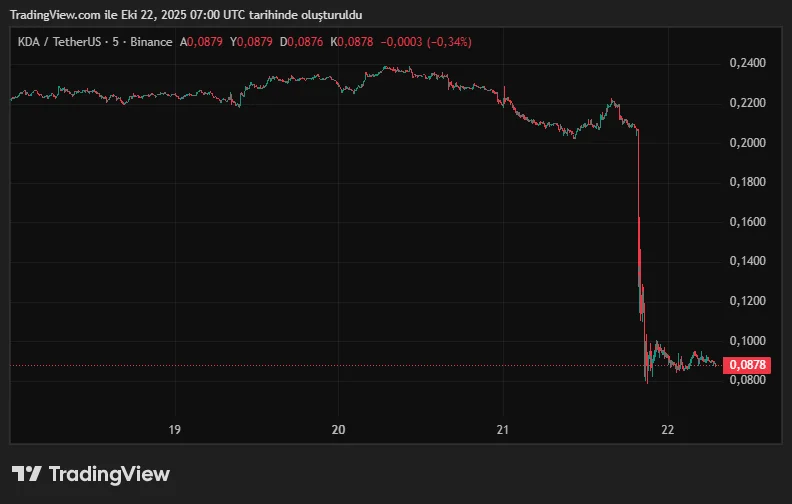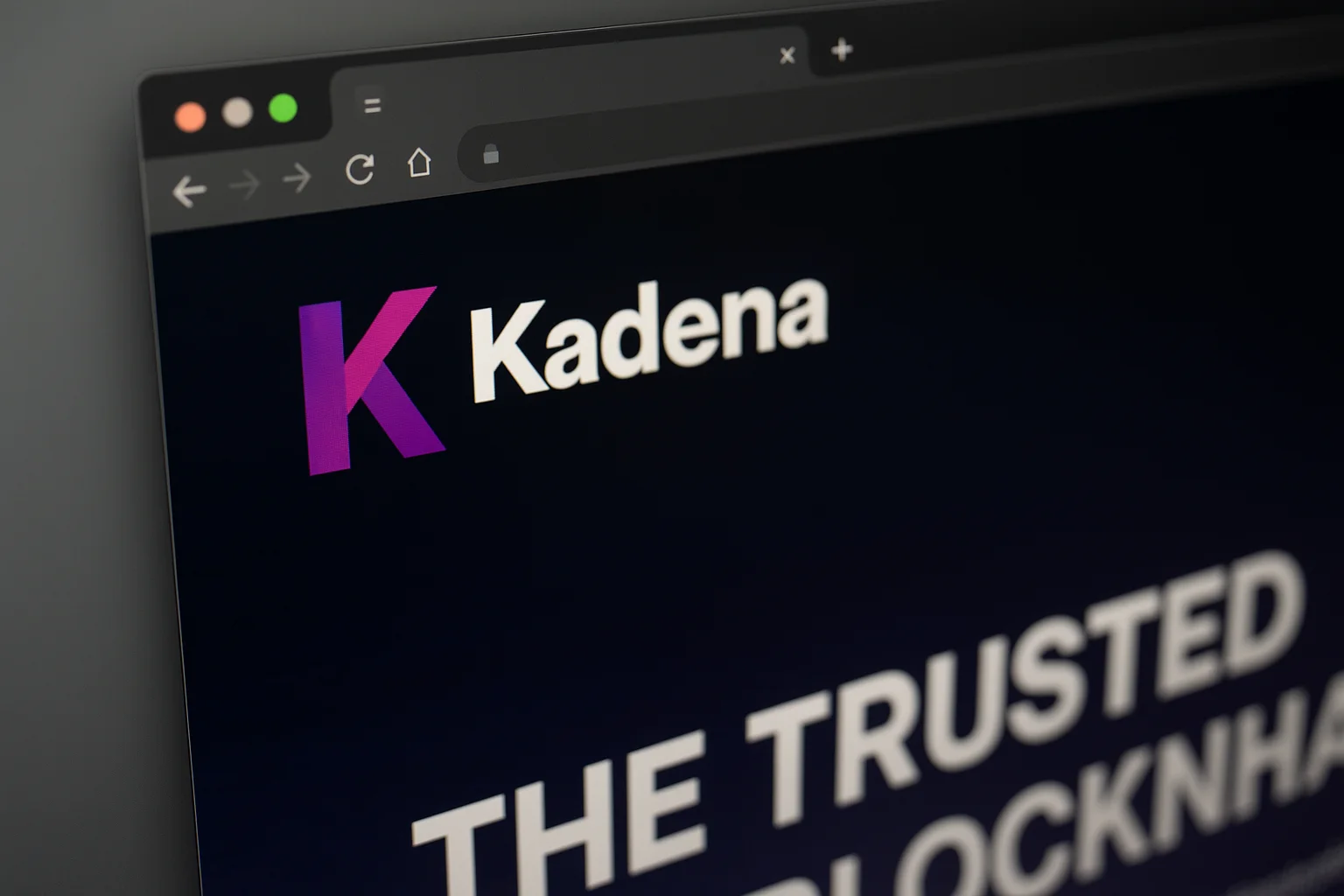Kadena has announced the end of its blockchain journey, which began with high hopes in 2019. The team behind the project announced that it was "immediately" ceasing operations due to increasingly challenging market conditions. Following this decision, the price of the KDA token plummeted, losing more than 50% of its value to $0.09. This decline represents a near-total collapse for KDA, which had peaked above $27 in 2021.

Kadena Shocks the Market
In a statement on its official X account, the Kadena team stated, "We are grateful to everyone who has been with us on this journey. However, due to current market conditions, it has been impossible for us to continue the adoption of this unique decentralized ecosystem." The company announced the cessation of all business activities and active maintenance, emphasizing that the Kadena blockchain's decentralized nature will allow the network to continue operating autonomously.
According to the team, the Kadena network will continue to be operated by independent miners, and smart contracts will be managed by their community. The developers announced that they would release a "new binary version" to ensure the network's uninterrupted operation and invite all node operators to upgrade. There are approximately 566 million additional KDA allocated to miners on the Kadena blockchain; this reward distribution will continue until 2139.
The New York-based project draws its roots from the traditional finance world. Kadena's founders, Stuart Popejoy and William Martino, were experienced players who had previously worked on the development of Kinexys, one of JPMorgan's blockchain initiatives. Popejoy and Martino set out to bridge the corporate finance and cryptocurrency worlds. While Kadena uses a proof-of-work mechanism like Bitcoin, it positioned itself as a "business blockchain" and aimed to offer an alternative ecosystem to Ethereum with its smart contract infrastructure.
In 2022, Kadena launched a $100 million grant program to attract developers. However, even this initiative failed to sustain interest. Over time, transaction volumes declined, community interest waned, and the network fell into the shadow of competing chains. Today, KDA's 24-hour trading volume is just over $50 million, while giants like Bitcoin and Ethereum have daily volumes in the tens of billions of dollars.
Kadena, which once boasted of being "bigger than Bitcoin and more reliable than Ethereum," has finally faced the harsh realities of the market. While the project will technically survive thanks to its fully decentralized structure, it no longer has a company behind it.




